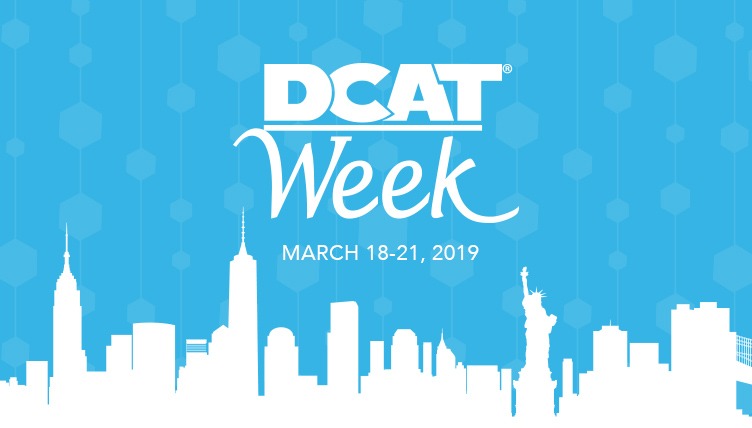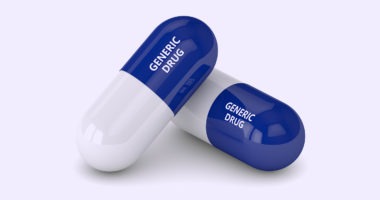DCAT Week ’19 Preview: Global Pharma Industry Outlook, Executive Insights and Nobel Laureate in Chemistry
How did the pharma industry perform in 2018, and what is the outlook for 2019 and beyond? What are the key drivers shaping drug-development and commercialization, and what is the impact on manufacturing and supply? What may the future hold in the interface between chemistry and biology? Speakers at DCAT Week ’19, which will be March 18–21 in New York, will address those all-important questions.
Global pharma industry outlook
The performance of the pharmaceutical industry is central to the decision-making of both pharmaceutical companies and suppliers. Global drug spending reached $1.2 trillion in 2018, according to a recent analysis by the IQVIA Research Institute for Human Data Science. Total global spending on medicines is expected to top $1.5 trillion by 2023, up 50% from 2014, even as annual growth moderates at 3% to 6% on an annual compound basis compared to 6.3% over the past five years, according to the IQVIA report. Key drivers of growth during the next five years will be the US with a projected compound annual growth rate (CAGR) of 4% to 7% and “pharmerging” markets (defined by IQVIA as low-income countries with high pharmaceutical growth) with 5% to 8% CAGR.
 |
|
Graham Lewis |
At the DCAT Week education program, Pharma Industry Outlook, Graham Lewis, Vice President, Global Pharma Strategy, IQVIA, will delve deeper into the market data by examining the US pharmaceutical market, other developed markets—the EU5 (France, Germany, Italy, Spain, and the UK) and Japan—and prospects in emerging markets, including China, the second largest pharmaceutical market behind the US. The program will also provide an outlook for both innovator and generic drugs and the fortunes of small molecules and biologics.
Drug pricing plays a major role in the valuation of the pharmaceutical market, and the Pharma Industry Outlook program will feature a panel of industry experts to discuss both the market response and public policy initiatives to address ways to lower the price of prescription drugs and the impact on the pharmaceutical manufacturing value chain.
The policy debate on drug pricing in the US is heating up as the US Senate is scheduled to hold hearings with pharmaceutical industry CEOs later this month. Meanwhile, the Trump Administration has stressed its interest for more drug-pricing transparency and other initiatives to lower the cost of prescription drugs, including the elimination of drug rebates. In 2018, President Donald Trump and the US Department of Health and Human Services Secretary Alex Azar introduced their plan for addressing ways in which to improve the affordability and reduce the cost of prescriptions drugs. That plan, called the American Patients First: The Trump Administration Blueprint to Lower Drug Prices and Reduce Out-of-Pocket Costs, laid out four strategies: increasing drug competition, enhancing negotiation, creating incentives for lower list prices, and bringing down out-of-pocket costs.
 |
|
Martin VanTrieste |
Although not directly involved in drug pricing, the US Food and Drug Administration (FDA) is addressing those objectives through announced and proposed reforms to increase drug competition. In 2017, it announced its Drug Competition Action Plan that seeks to increase competition and improve access to generic drugs and since then has put forth several measures to improve the development and approval process for generic drugs.
The market is also responding to pressure to reduce drug costs and optimize healthcare-delivery models. These issues were a driving force behind two mega mergers in 2018: the $69-billion merger of CVS Health Corporation, the largest retail pharmacy chain in the US, and Aetna, the third-largest health-insurance company in the US, and the $52-billion acquisition of Express Scripts, a pharmacy benefit manager, by Cigna, a health insurer. At the same time, downward pricing pressure, margin erosion, and increased product competition in the US generics market contributed to a revamping of strategies of several major generic-drug companies in 2018, including Teva Pharmaceutical Industries, Mylan, and Novartis’ Sandoz.
How public policy and the market will be shaped by these evolving business dynamics and the impact on the pharmaceutical industry overall and on drug manufacturers and suppliers in particular will be the focus of the panel discussion at the Pharma Industry Outlook program at DCAT Week. Martin VanTrieste, President & Chief Executive Officer, Civica Rx, a not-for-profit generic-drug company focused on providing generic medications that are accessible and affordable, including drugs at risk for shortages. Mr. VanTrieste, formerly Senior Vice President, Quality, Amgen, brings more than 35 years of industry experience to the discussion. Also on the panel will be Roshawn Blunt, Managing Director, 1798 Consultants, a highly regarded expert on market access and the payer environment with more than 20 years of industry experience, which included various roles in reimbursement, market access, health policy, and global health economics at Amgen and Johnson and Johnson. Christine Simmon, Senior Vice President of Policy and Scientific Affairs, Association for Accessible Medicines (formerly the Generic Pharmaceutical Association) will bring a unique view of the policy issues impacting drug pricing.
Further information on the DCAT Week program, Pharma Industry Outlook, including how to register, may be found here.
Executive Insights: Drug Development, Manufacturing, and Supply
Tuesday, March 19 during DCAT Week provides a unique opportunity to hear from leading industry executives on what they see as the key issues impacting drug development and the impact on manufacturing and supply, including on supplier partnership models.
The Executive Insights I: A CEO View: Drug Development, Manufacturing, and New Technologies program will feature Marc N. Casper, President and Chief Executive Officer, Thermo Fisher Scientific, a $20-billion-plus global provider of services and products to the life sciences and pharmaceutical/biopharmaceutical industries. He will share his views on the drivers shaping drug development, including the role of precision medicine today and in the future, and the potential game-changers impacting drug development, enabling technologies and supply.
In Executive Insights II: The Future of Pharma/Biopharm Manufacturing and Supply, Christopher Sinko, PhD, Senior Vice President and Head, Product Development, Bristol-Myers Squibb and Diane Blumenthal, Head of Technical Operations, Spark Therapeutics, will share their views on the technologies, operational factors, and macro issues that will influence how manufacturing networks are managed and how product is supplied. Dr. Sinko brings a wealth of management experience in manufacturing from his leadership roles with Bristol-Myers Squibb and formerly with Pfizer. Ms. Blumenthal provides a unique view in producing new modalities, such as gene therapies, in her current role with Spark Therapeutics, a company with the first FDA-approved gene-therapy product for a genetic disease and first licensure of a US-based manufacturing facility for such a product, as well as in biomanufacturing with her prior experience with Eli Lilly and Company and ImClone Systems.
Further information, including how to register, for Executive Insights I: A CEO View: Drug Development, Manufacturing, and New Technologies, may be found here, and for Executive Insights II: The Future of Pharma/Biopharm Manufacturing and Supply may be found here.
 |
 |
 |
|
Marc N. Casper |
Christopher Sinko, PhD |
Diane Blumenthal |
The Nobel Laureate in Chemistry at DCAT Week
 |
|
Dr. Francis Arnold |
In a special keynote address, Dr. Frances H. Arnold, PhD, Nobel Laureate in Chemistry (2018), will speak on Tuesday, March 19 at DCAT Week. Dr. Arnold is the Linus Pauling Professor of Chemical Engineering, Bioengineering and Biochemistry and the Director of the Donna and Benjamin M. Rosen Bioengineering Center at the California Institute of Technology and was awarded the Nobel Prize in Chemistry in 2018 for pioneering the use of directed evolution to engineer enzymes. In 1993, she conducted the first directed evolution of enzymes, which are proteins that catalyze chemical reactions. Since then, she has refined the methods that are now used in a variety of applications, such as the development of new biocatalysts, which are applied in pharmaceutical synthesis, the manufacture of other chemicals, and in the production of renewable fuels. She has made significant contributions to advance the fields of protein engineering, directed protein evolution, structure-guided protein recombination, biocatalysis, and biofuels.
This special keynote address is open to DCAT member companies; all proceeds from this event directly support the initiatives of DCAT’s Science & Scholarship Committee. Further information, including how to register, may be found here.
Other education programs at DCAT Week: best practices and lessons learned
DCAT Week will feature two other education programs, both on Wednesday, March 20: Sourcing and Procurement: The Next Generation and Emerging Pharma: Aligning Regulators, Investors and Suppliers to Assure Successful Drug Development.
New technology platforms and accelerated development timelines are some of the challenges facing sourcing and procurement managers in a rapidly evolving marketplace. What is needed to adapt to these changes, and what steps can pharmaceutical companies, contract development and manufacturing organizations (CDMOs), contract manufacturing organizations (CMOs), and suppliers take to optimize supply?
The Sourcing and Procurement: The Next Generation education program provides answers to these questions. Executives from Celgene will offer insight from the lens of how strategic sourcing is evolving across the pharmaceutical and biotech industry as new technology platforms evolve from small molecules and biologics into cell and gene therapies. They will share insight for evaluating capabilities, mitigating risk, scaling, and maturing a supplier ecosystem to support cell and gene therapy while managing traditional modalities in small molecules and biologics. Further information, including how to register, may be found here.
Start-up companies and small, innovator companies play an important role in product innovation in the pharmaceutical industry. To bring those products through development, emerging pharmaceutical companies rely heavily on contract service providers to provide development and manufacturing services. The education program, Emerging Pharma: Aligning Regulators, Investors and Suppliers to Assure Successful Drug Development, is designed to assist emerging bio/pharma companies and their development partners to resolve key factors that influence the nature, pace, and cost of product development. Further information, including how to register, may be found here.
The full line-up of the DCAT Week education programs and schedule of events may be found here.






